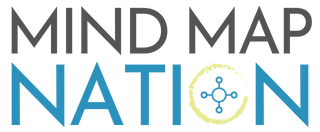How to Regain Hope in Humanity
These days, it seems impossible to not get sucked into the news cyclone of global conflicts. Just a quick scroll through Twitter can leave you depressed about the state of humanity.
While it's important to stay informed, taking in too much leaves us feeling powerless and hopeless, simply because most of news is beyond our sphere of control.
That’s why I propose a different approach by adopting the mindset of Local Impact and Global Optimism (LIGO).
What does this mean?
The LIGO Mindset: Local Impact & Global Optimism
At its core, this philosophy emphasizes focus on what you can control—your local environment—while maintaining a broader optimistic perspective about the state of the world and humanity.
Why Local Impact?
Taking local actions gives you back your sense of agency. You don't need to run for mayor to make a difference. Your local impact could be as simple as helping a friend, leaving public spaces cleaner than you found them, or giving a warm greeting to your local barista.
Local impact is about focusing on what you can control in your immediate surroundings. How can you bring more kindness, compassion, and positivity into your home, workplaces, and community?
Why Global Optimism?
Global optimism, on the other hand, is maintaining hope in human nature. Being globally optimistic is not naive; it's a rational stance based on empirical evidence.
If humanity were fundamentally more bad than good, you and I would not be here. Civilization as we know it would not exist. Our very survival over millenia is a testament to the macro prevalence of good over evil, cooperation over conflict.
Does this mean you should be complacent about global challenges?
Of course not. But neither does drowning in news motivate meaningful change. It simply breeds anger, despair and disconnection.
Focusing your energy on Local Impact allows you to take direct action that brings tangible positive change. While maintaining Global Optimism gives you the hope and resilience you need to get out of bed.
You may not be able to single-handedly solve the world's problems, but you can bring more light into your own corner. If we all did this, then the world is guaranteed to be a better place.
The LIGO Practice
So how can you practically integrate this mindset into your daily lives?
Here are four simple practices that you can do every day to upkeep your mental health amidst global turmoil:
Set Boundaries: If you engage with news, set a timer. Limit your exposure to 15 minutes to get updated on the critical details without getting overwhelmed.
Practice Gratitude: Instead of getting depressed over the state of the world, take a step back and observe just how lucky you are to be in a place of safety and stability. Put yourself in the shoes of people in ground zero of the conflict, write down three things that you normally take for granted, but now seem priceless.
Local Actions: Identify one action that positively impacts your local environment. It could be anything from helping a friend, to supporting a local business, to picking up litter.
Reflect: At the end of the day, take a moment to reflect on your immediate impact. This not only reinforces positive behavior but also serves as a daily reminder of your agency. Better yet, take this opportunity to reaffirm the good of humanity based on your own experiences.
When you are ready to sit down and study the nature of the conflict, then I recommend taking a methodical approach using the Crisis Mind Map I designed to understand emerging conflicts. This is how I sprinted up the learning curve around the Russian-Ukraine and Afghanistan episodes as they were unfolding.
Remain resilient, safe and thoughtful, my dear friends.
Curiously yours,
Sheng
Make the most of your mind maps
Thanks for reading this article. If you found it useful, you can get a new mind map in your inbox every week. Epiphany is your dose of structured thinking and ordered chaos.

